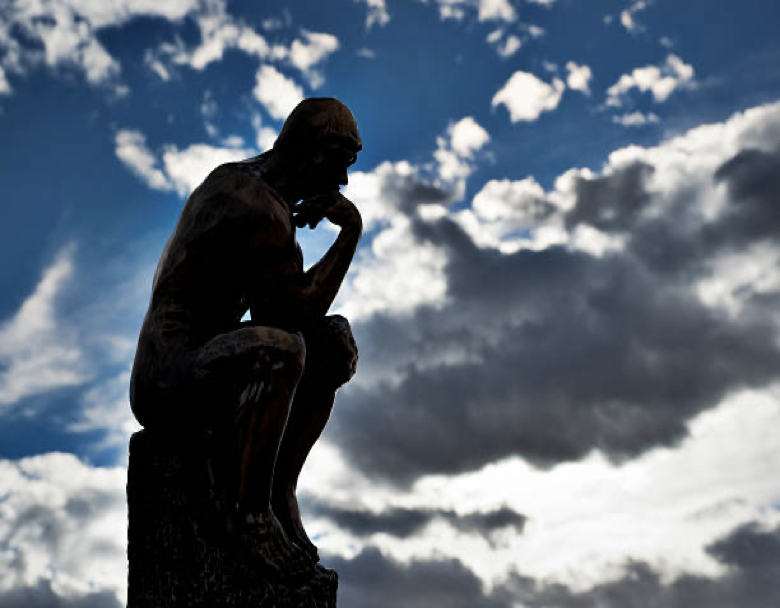Stoicism, a philosophical school with its roots in ancient Greece around the 3rd century BCE, rose to prominence during the Roman Empire, leaving an indelible mark on various facets of Western thought. Even today, its teachings endure, resonating with those in search of a pragmatic and harmonious outlook on life.
The fundamental idea at the heart of stoicism is that people should focus on what they can manage and embrace acceptance for what is out of their control. By releasing oneself from the influence of outside circumstances, this fundamental idea, known as “the dichotomy of control,” motivates the quest of inner peace and calm. The world of one’s thoughts, judgements, and attitudes, however, is totally within their control, whereas external circumstances, such as material wealth, celebrity, or other people’s acts, are outside of their area of influence. A strong sense of resilience and emotional balance in the face of life’s uncertainties are the goals of those who follow this ideology.
The idea of coexisting peacefully with nature is fundamental to the Stoic philosophy. This idea refers to the overarching logic, or logos, that rules the cosmos rather than the natural world. Stoics held that people may achieve a sense of inner harmony and fulfilment by coordinating their own will with the logical order of the universe.
The Stoics recommended cultivating wisdom, courage, justice, and temperance—the four cardinal virtues—in order to reach this condition of tranquillity. Understanding what is and is not under one’s control is a necessary component of wisdom. Having the fortitude to face obstacles and problems is what it means to have courage. Justice places a strong emphasis on treating others fairly and kindly. Self-control and moderation in impulses and emotions are related to temperance.
Epictetus stands out as a particularly significant figure among the great Stoic thinkers. The key distinction between what is under our control (i.e., “up to us”) and what is not under our control (i.e., “not up to us”) centred his teachings. By accepting this dichotomy, people can liberate themselves from the heavy anxiety brought on by outside circumstances and instead focus on developing their inner virtues. The importance of controlling one’s responses to outside stimuli was underlined by Epictetus, who claimed that true happiness comes not from the outside world but from the mind’s interpretation of it. He basically advocated for the idea that our inner character and attitude have the real influence on how pleased and fulfilled we feel in life.

The Roman Emperor and Stoic philosopher Marcus Aurelius elaborated on the Stoic precepts in his private musings known as “Meditations.” Aurelius advised people to live with virtue and inner peace through his writings, despite the difficulties and uncertainties of life. Adversity, in his opinion, presents a chance for personal development, and he urged people to embrace life’s ups and downs with dignity and fortitude.
The appeal of stoicism resides in its realism and applicability to contemporary life. Stoicism is a way of thinking that encourages inner fortitude and mental toughness in a time of perpetual change and uncertainty. Individuals can lead more fulfilling lives by embracing the transience of their external circumstances and concentrating on themselves.
Stoicism inspired other philosophical traditions as well, such as early Christian philosophy and existentialism. Stoic concepts were incorporated into theology by early Christian theologians such as Saint Augustine, who emphasised the need of fostering inner virtue and detachment from temporal possessions. Similarly, existentialists such as Albert Camus found common ground with Stoic ideals of accepting the absurdity of life and taking human responsibility in an uncaring universe.
Stoic philosophy is an enduring and pragmatic guide to navigating life’s challenges. Stoicism provides a profound path to inner tranquillity and genuine contentment by concentrating our attention to what we can control and fostering inner qualities. Its eternal impact on other intellectual traditions, as well as its lasting relevance in the modern world, attest to its profound insight. As people struggle to find meaning and purpose in an ever-changing world, Stoicism’s emphasis on self-mastery and acceptance remains a vital beacon, illuminating the route to a fulfilling and purposeful life.
Sources
- https://en.m.wikipedia.org/wiki/Stoicism#:~:text=Stoicism%20teaches%20the%20development%20of,the%20universal%20reason%20(logos).
- https://www.holstee.com/blogs/mindful-matter/stoicism-101-everything-you-wanted-to-know-about-stoicism-stoic-philosophy-and-the-stoics
- https://www.britannica.com/topic/Stoicism
- https://www.thecollector.com/what-is-stoicism-the-stoics-beliefs/
- https://study.com/academy/lesson/stoicism-overview-philosophy.html




